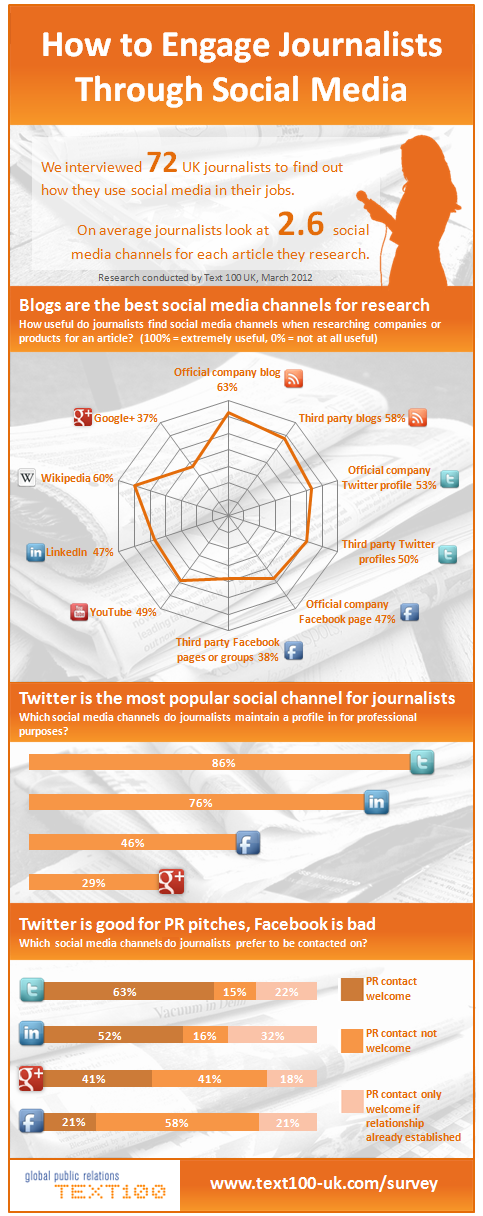It is generally accepted that journalists prefer hospital PR folks to contact them on Twitter, rather than by phone or email, forcing them to make their pitch, sell the story and save time. But how true is this? And to what extent has social media transformed the way healthcare media relations do their job?
It is generally accepted that journalists prefer hospital PR folks to contact them on Twitter, rather than by phone or email, forcing them to make their pitch, sell the story and save time. But how true is this? And to what extent has social media transformed the way healthcare media relations do their job?
Text 100 conducted a survey in 2012 that helps us to understand how social media affects the way journalists do their jobs and whether it impacts on the way hospital PR professionals should engage with them.
Major findings:
- Corporate blogs were the most useful social media channel
- On average a journalist will use 3 different social media channels every time they research a story
- 86% journalists use Twitter for work and 85% welcome PR contact through their Twitter profiles
- LinkedIn is used to find industry experts to interview and 84% journalists are happy to be approached via LinkedIn
- Wikipedia is cited as a useful resource for background data
- Surprisingly, journalists still rely heavily on press releases for news stories
- More journalists said that PR contact was welcome via phone calls and emails than through any of their social channels
Although 40% of journalists use a Facebook account to manage their professional relationships, it is one of the least useful channels with only 42% of media welcoming contact via that channel.

How to engage journalists through social media via Text100